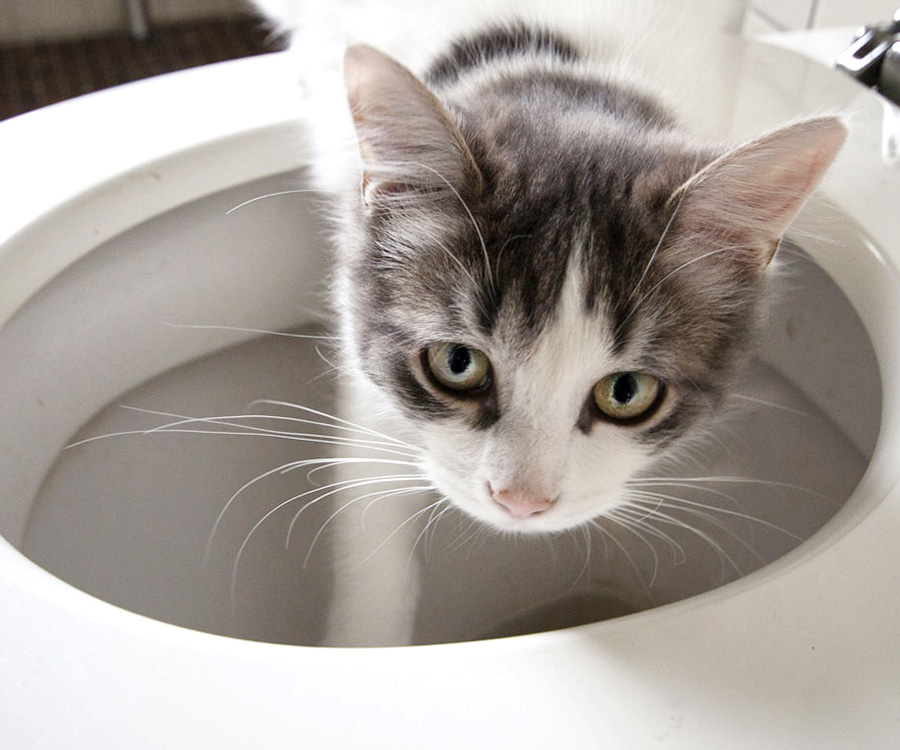Prevent Plumbing Problems: Never Flush Cat Poop Down Your Toilet - Expert Guidance
Prevent Plumbing Problems: Never Flush Cat Poop Down Your Toilet - Expert Guidance
Blog Article
This article below in relation to How to Dispose of Cat Poop and Litter Without Plastic Bags is without a doubt remarkable. Give it a try and draw your own conclusions.

Introduction
As cat owners, it's necessary to be mindful of exactly how we throw away our feline pals' waste. While it may seem hassle-free to flush cat poop down the commode, this method can have harmful consequences for both the setting and human health and wellness.
Alternatives to Flushing
Fortunately, there are much safer and much more accountable ways to throw away feline poop. Take into consideration the following alternatives:
1. Scoop and Dispose in Trash
The most common technique of getting rid of feline poop is to scoop it right into an eco-friendly bag and toss it in the garbage. Make sure to use a devoted trash inside story and take care of the waste quickly.
2. Use Biodegradable Litter
Opt for eco-friendly cat trash made from products such as corn or wheat. These litters are environmentally friendly and can be securely taken care of in the trash.
3. Hide in the Yard
If you have a yard, think about hiding cat waste in an assigned area far from vegetable gardens and water sources. Be sure to dig deep adequate to stop contamination of groundwater.
4. Mount a Pet Waste Disposal System
Buy a pet dog waste disposal system particularly developed for feline waste. These systems make use of enzymes to break down the waste, decreasing smell and environmental effect.
Health and wellness Risks
In addition to ecological worries, flushing pet cat waste can likewise pose wellness dangers to people. Cat feces might include Toxoplasma gondii, a bloodsucker that can cause toxoplasmosis-- a possibly severe ailment, particularly for expecting females and people with damaged immune systems.
Environmental Impact
Purging pet cat poop presents dangerous virus and bloodsuckers into the water system, presenting a substantial risk to aquatic communities. These pollutants can adversely influence aquatic life and concession water quality.
Conclusion
Accountable pet possession expands past supplying food and sanctuary-- it also involves appropriate waste management. By refraining from flushing cat poop down the bathroom and selecting alternative disposal techniques, we can decrease our environmental footprint and secure human health and wellness.
Why You Should Never Flush Cat Poop Down the Toilet
A rose by any other name might smell as sweet, but not all poop is created equal. Toilets, and our sewage systems, are designed for human excrement, not animal waste. It might seem like it couldn’t hurt to toss cat feces into the loo, but it’s not a good idea to flush cat poop in the toilet.
First and foremost, assuming your cat uses a litter box, any waste is going to have litter on it. And even the smallest amount of litter can wreak havoc on plumbing.
Over time, small amounts build up, filling up your septic system. Most litter sold today is clumping; it is made from a type of clay that hardens when it gets wet. Ever tried to scrape old clumps from the bottom of a litter box? You know just how cement-hard it can get!
Now imagine just a small clump of that stuck in your pipes. A simple de-clogger like Drano isn’t going to cut it. And that means it’s going to cost you big time to fix it.
Parasitic Contamination
Believe it or not, your healthy kitty may be harboring a nasty parasite. Only cats excrete Toxoplasma in their feces. Yet it rarely causes serious health issues in the cats that are infected. Most people will be fine too if infected. Only pregnant women and people with compromised immune systems are at risk. (If you’ve ever heard how women who are expecting are excused from litter cleaning duty, Toxoplasma is why.)
But other animals may have a problem if infected with the parasite. And human water treatment systems aren’t designed to handle it. As a result, the systems don’t remove the parasite before discharging wastewater into local waterways. Fish, shellfish, and other marine life — otters in particular — are susceptible to toxoplasma. If exposed, most will end up with brain damage and many will die.
Depending on the species of fish, they may end up on someone’s fish hook and, ultimately on someone’s dinner plate. If that someone has a chronic illness, they’re at risk.
Skip the Toilet Training
We know there are folks out there who like to toilet train their cats. And we give them props, it takes a lot of work. But thanks to the toxoplasma, it’s not a good idea.

As a keen reader on How to Dispose of Cat Poop and Litter Without Plastic Bags, I think sharing that article was a good thing. Are you aware of someone else who is very much interested in the subject? Do not hesitate to promote it. Thanks for your time spent reading it.
View Website Report this page